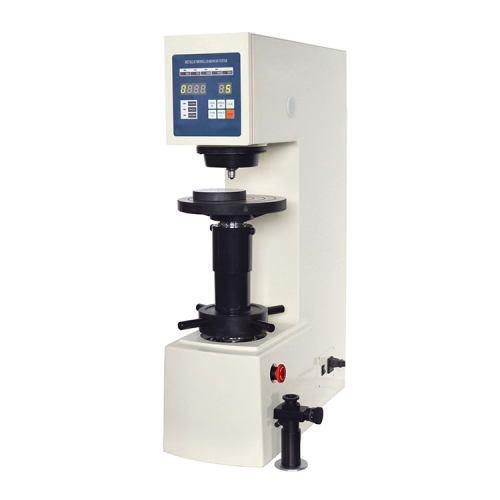What Kinds of Materials Can Brinell Hardness Testers Test?

A Brinell Hardness Tester works best on softer materials, but it can test a broad variety of materials. Here is a breakdown of the types of materials that can be tested with a Brinell Hardness Tester:
Suitable Materials
l Ferrous metals: These consist of low-alloy steels, cast iron, steel, and iron.
l Non-ferrous metals: Lead, copper, brass, bronze, and aluminum are a few of these.
l Plastics: A Brinell Hardness Tester can be used to test a variety of plastics, such as ABS, nylon, acrylic, and PVC.
l Some ceramics: A Brinell Hardness Tester can be used to determine the hardness of softer ceramics, such as porcelain and bone china.
Materials to Avoid
l Very hard materials: Ceramics like alumina and zirconia, tungsten carbide, and extremely hard materials like hardened steel shouldn't be tested with the Brinell Hardness Tester. There is a chance that the indenter ball will warp and give false readings.
l Materials with very high hardness gradients: Materials with extremely high hardness gradients, like case-hardened or nitrided steel, should not be tested with the Brinell Hardness Test. The size of the indentation will not be a true indicator of the material's overall hardness.
l Very thin materials: Very thin materials shouldn't be subjected to the Brinell Hardness Test due to the possibility of material damage from the indentation's size.
l Materials with curved surfaces: Materials with curved surfaces should not be subjected to Brinell Hardness tests, as insufficient contact between the ball indenter and the material can result in readings that are not accurate.
- Art
- Causes
- Crafts
- Dance
- Drinks
- Film
- Fitness
- Food
- Spellen
- Gardening
- Health
- Home
- Literature
- Music
- Networking
- Other
- Party
- Religion
- Shopping
- Sports
- Theater
- Wellness


